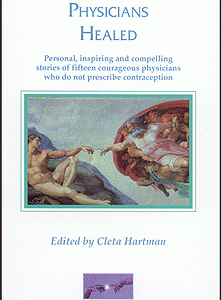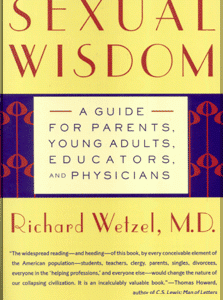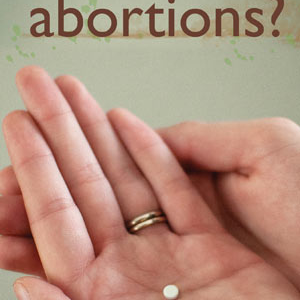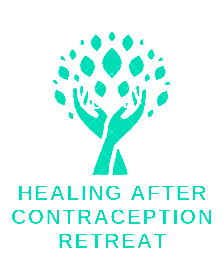This homily (slightly abridged) was given on January 17, 1999 at the Cathedral of SS. Peter and Paul, Providence RI
Reading — John 1: 29-34
As he stood on one of the banks of the Jordan River that day, he was surrounded by many people: people from Jerusalem, people from the countryside of Judea — they came to him in huge numbers. Of course, that was not unusual. In fact, Scripture indicates that it was always that way for John the Baptist. He truly was a charismatic personality, a man who could draw a crowd and then hold them spellbound by his teaching and preaching—because he spoke the truth with such clarity and conviction. We’re told that even some of those who hated him, like King Herod, were “captivated by his words.”
So there he is, in the midst of this vast sea of humanity, ministering as he always did to hundreds of hungry souls, and he suddenly catches sight of someone coming toward him. Now please keep in mind that everyone else who was there that day saw this same individual making his way toward John. But to them, he was simply a young Galilean male, about 30 years of age; if they knew his family they would have said, “Oh yes, that’s the son of Joseph—the carpenter from Nazareth.”
In other words, when these hundreds of people looked at Jesus, they saw someone who appeared to be just like everybody else. But not John! John looked up, saw his cousin walking in his direction, raised his finger and said, “Look there! The Lamb of God who takes away the sin of the world.” JOHN THE BAPTIST PERCEIVED WHAT EVERYONE ELSE MISSED! And that’s my point: John the Baptist perceived the deeper reality that everyone else missed!
My brothers and sisters, we live in a world right now in which a similar phenomenon is taking place with respect to the human person and basic life issues. For example, when we as Catholics and as Christians look at another human being, we “see” an individual of infinite value, an individual made in God’s image and likeness, an individual with an immortal soul, an individual deserving of the utmost respect from the moment of conception to the moment of natural death.
But the sad and tragic fact is that many others do not “see” any of those things when they look at a fellow human being. When they look at another man or woman what they see is a cluster of cells, a product of conception, a disposable item, an object to be used for their own pleasure, a being no more valuable than a mosquito. They are like the crowds that stood with John that day on the banks of the Jordan River: They do not perceive the deeper reality of each person’s dignity.
But unfortunately the “perception problem”, as I would call it, goes beyond this, even affecting some who would call themselves “pro-life.” Here I’m thinking of those who do not perceive that abortion is the key social issue of our time. These people would say, “Of course I’m pro-life, but I think there are other social issues which are just as important as abortion: poverty, racism, violence, capital punishment and the like. Therefore all issues should be treated equally.” The problem with that position is that it’s contrary to what our Holy Father has said, and it’s contrary to common sense!
As John Paul II told us just before he left our country after his pastoral visit of 1987:
“Feeding the poor and welcoming refugees, reinforcing the social fabric of this nation, promoting the true advancement of women, securing the rights of minorities, pursuing disarmament, while guaranteeing legitimate defense: all this will succeed only if respect for life and its protection by law is granted to every human being from conception until natural death. Every human person, no matter how vulnerable or helpless, no matter how young or how old, no matter how healthy, handicapped or sick, no matter how useful or productive for society, is a being of inestimable worth created in the image and likeness of God. This is the dignity of America, the reason she exists, the condition of her survival, the ultimate test of her greatness: to respect every human person, especially the weakest and most defenseless ones, those as yet unborn.”
The Holy Father, who certainly has the perception of John the Baptist, rightly understands that a person’s position on the issue of abortion will ultimately affect his or her position on every other social and moral issue. Common sense should tell us that if we do not have respect for the innocent human life inside the womb, sooner or later we will not have any respect for the not-so-innocent human life outside the womb. We wonder why so many young people today exhibit such violent behavior. I’m convinced it’s because they have grown up in a world where violence toward pre-born babies is considered acceptable behavior. And so these young people think to themselves: “If it’s okay to kill that innocent baby, what is so bad about killing that guy in school who’s been mean to me? He’s certainly not innocent. If there are some innocent babies who don’t deserve to live, then he certainly doesn’t deserve to live.”
Another area where the “perception problem” exists is what I would call “the contraception connection.” This connection between contraception and abortion, as well as the connection between contraception and other social and moral evils, has been clearly affirmed by two great prophets of the latter 20th century: John Paul II and Paul VI. With the keen perception of John the Baptist, these two men have seen what so many intellectuals have completely missed.
In the Gospel of Life, number 13, our present Holy Father says that although “they are specifically different evils” both abortion and contraception are “fruits of the same tree,” rooted in “a self-centered concept of freedom.” Marvelously put! In other words, at the root of both abortion and contraception is pure, unadulterated human selfishness. The person using contraception says to his or her spouse, “You exist for me. Your purpose is to give me pleasure—to satisfy my desires.” (The action itself proclaims that message.) The advocate of abortion says, “Pregnancy is a disease and children are a nuisance. I should not have to be bothered dealing with either one.”
And then in 1968, that much-persecuted prophet Paul VI clearly annunciated the perennial teaching of the Church—that there are two purposes of marital sex: to have children and to establish a loving union between the spouses. And he indicated that whenever these two purposes are separated through a contraceptive act, it actually harms the relationship between a husband and wife.
Back then of course, most people laughed at such an idea. They said, “Holy Father, you’ve got to be kidding. Don’t you realize—artificial birth control is a great blessing! It will make for stronger marriages. Couples won’t have to worry about unwanted pregnancies anymore. It will lessen marital anxiety. It will make for happier relationships and stronger families.”
The Pope said, “Don’t be fooled!” He warned that if artificial contraception ever became accepted and widespread, there would be many negative consequences: he said that there would be more infidelity in marriages; he said that women would be treated more and more like objects by men; he said that morals would be lowered in society as a whole; and he predicted that some governments would try to push birth control on poor countries—just like the United States does today.
On every count, he was right! He had the perception of the Baptist when so many others were blinded by their hormones! Praise God, some 30 years later, many are now finally seeing the truth and embracing it—so there is hope!
On that note, I just finished reading a great book that I’ll recommend to you. It’s called Physicians Healed, and it’s published by One More Soul.* It consists of personal testimonies by 15 doctors (obstetricians, gynecologists and family practitioners) who have stopped giving all contraception to their patients. (Not all of them are Catholic!) They have all become promoters and teachers of Natural Family Planning—which, contrary to popular belief, is NOT the old “Rhythm Method.” It’s a scientific method of fertility awareness which can be used either to achieve or avoid a pregnancy, and which, when used properly, is acceptable to the Church and is as effective as any means of contraception.
One of the doctors cited in this book wrote the following in his personal testimony. This, I would say, speaks volumes:
“I now realize that contraception is neither good nor necessary. May the Lord forgive me for those human embryos I eliminated with IUDs. Mea culpa. May the Lord forgive me for those human embryos I eliminated with Norplant. Mea culpa. May the Lord forgive me for those human embryos I eliminated with the rape protocol. Mea culpa. May the Lord forgive me for those human embryos I eliminated with birth control pills. Mea maxima culpa.
As physicians, we should realize that the popes have far more wisdom on ethical issues than we could imagine. We can only appreciate their wisdom by following their teachings. We are not smart enough to overrule their infallible reasons. Eight years of medical training does not counterbalance 2,000 years of Catholic tradition. To learn, we must adopt an open-minded attitude of humility and obedience.”
Now there’s a doctor with the insight and perception of John the Baptist!
May all of us in this cathedral tonight be willing to open our minds to the fullness of God’s truth as taught by his Church, so that we can become true apostles for life in this present culture of death. May we follow the example of John and proclaim this truth without compromise and without shame. And may we always point to Jesus like John did, telling those who have had abortions and performed abortions and used contraception, “Don’t despair. Look, there is the Lamb of God, who will take away your sin—if you simply go to him in Confession;” and saying to the whole world, “Look, there is the Lamb of God who came to give us life—not death—LIFE! Treasure this gift, nurture this gift on earth, and receive the fullness of the gift someday in heaven.”
Amen.
* For more information about the book Physicians Healed which Fr. Suriani praised in his homily, contact One More Soul at 1(800) 307-7685.






